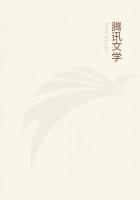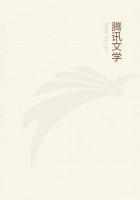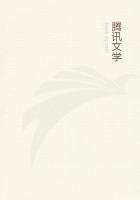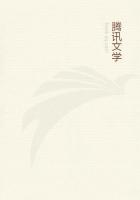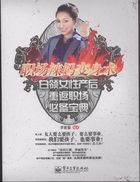So strong was the impression made on the mind of Frances by the society which she was in the habit of seeing and hearing, that she began to write little fictitious narratives as soon as she could use her pen with case, which, as we have said, was not very early. Her sisters were amused by her stories: but Dr. Burney knew nothing of their existence; and in another quarter her literary propensities met with serious discouragement. When she was fifteen, her father took a second wife. The new Mrs. Burney soon found out that her stepdaughter was fond of scribbling, and delivered several good-natured lectures on the subject. The advice no doubt was well meant, and might have been given by the most judicious friend; for at that time, from causes to which we may hereafter advert, nothing could be more disadvantageous to a young lady than to be known as a novel-writer. Frances yielded, relinquished her favourite pursuit, and made a bonfire of all her manuscripts. [There is some difficulty here as to the chronology.
"This sacrifice," says the editor of the Diary, "was made in the young authoress's fifteenth year." This could not be; for the sacrifice was the effect, according to the editor's own showing, of the remonstrances of the second Mrs. Burney; and Frances was in her sixteenth year when her father's second marriage took place.]
She now hemmed and stitched from breakfast to dinner with scrupulous regularity. But the dinners of that time were early; and the afternoon was her own. Though she had given up novel-writing, she was still fond of using her pen. She began to keep a diary, and she corresponded largely with a person who seems to have had the chief share in the formation of her mind. This was Samuel Crisp, an old friend of her father. His name, well known, near a century ago, in the most splendid circles of London, has long been forgotten. His history is, however, so interesting and instructive, that it tempts us to venture on a digression.
Long before Frances Burney was born, Mr. Crisp had made his entrance into the world, with every advantage. He was well connected and well educated. His face and figure were conspicuously handsome; his manners were polished; his fortune was easy; his character was without stain; he lived in the best society; he had read much; he talked well; his taste in literature, music, painting, architecture, sculpture, was held in high esteem. Nothing that the world can give seemed to be wanting to his happiness and respectability, except that he should understand the limits of his powers, and should not throw away distinctions which were within his reach in the pursuit of distinctions which were unattainable.
"It is an uncontrolled truth," says Swift," that no man ever made an ill figure who understood his own talents, nor a good one who mistook them." Every day brings with it fresh illustrations of this weighty saying; but the best commentary that we remember is the history of Samuel Crisp. Men like him have their proper place, and it is a most important one, in the Commonwealth of Letters. It is by the judgment of such men that the rank of authors is finally determined. It is neither to the multitude, nor to the few who are gifted with great creative genius, that we are to look for sound critical decisions. The multitude, unacquainted with the best models, are captivated by whatever stuns and dazzles them. They deserted Mrs. Siddons to run after Master Betty; and they now prefer, we have no doubt, Jack Sheppard to Von Artevelde. A man of great original genius, on the other hand, a man who has attained to mastery in some high walk of art, is by no means to be implicitly trusted as a judge of the performances of others. The erroneous decisions pronounced by such men are without number. It is commonly supposed that jealousy makes them unjust. But a more creditable explanation may easily be found. The very excellence of a work shows that some of the faculties of the author have been developed at the expense of the rest; for it is not given to the human intellect to expand itself widely in all directions at once, and to be at the same time gigantic and well proportioned. Whoever becomes pre-eminent in any art, in any style of art, generally does so by devoting himself with intense and exclusive enthusiasm to the pursuit of one kind of excellence. His perception of other kinds of excellence is therefore too often impaired. Out of his own department he praises and blames at random, and is far less to be trusted than the mere connoisseur, who produces nothing, and whose business is only to judge and enjoy. One painter is distinguished by his exquisite finishing. He toils day after day to bring the veins of a cabbage leaf, the folds of a lace veil, the wrinkles of an old woman's face, nearer and nearer to perfection. In the time which he employs on a square foot of canvas, a master of a different order covers the walls of a palace with gods burying giants under mountains, or makes the cupola of a church alive with seraphim and martyrs. The more fervent the passion of each of these artists for his art, the higher the merit of each in his own line, the more unlikely it is that they will justly appreciate each other. Many persons who never handled a pencil probably do far more justice to Michael Angelo than would have been done by Gerard Douw, and far more justice to Gerard Douw than would have been done by Michael Angelo.
It is the same with literature. Thousands, who have no spark of the genius of Dryden or Wordsworth, do to Dryden the justice which has never been done by Wordsworth, and to Wordsworth the justice which, we suspect, would never have been done by Dryden. Gray, Johnson, Richardson, Fielding, are all highly esteemed by the great body of intelligent and well informed men. But Gray could see no merit in Rasselas; and Johnson could see no merit in the Bard. Fielding thought Richardson a solemn prig; and Richardson perpetually expressed contempt and disgust for Fielding's lowness.

